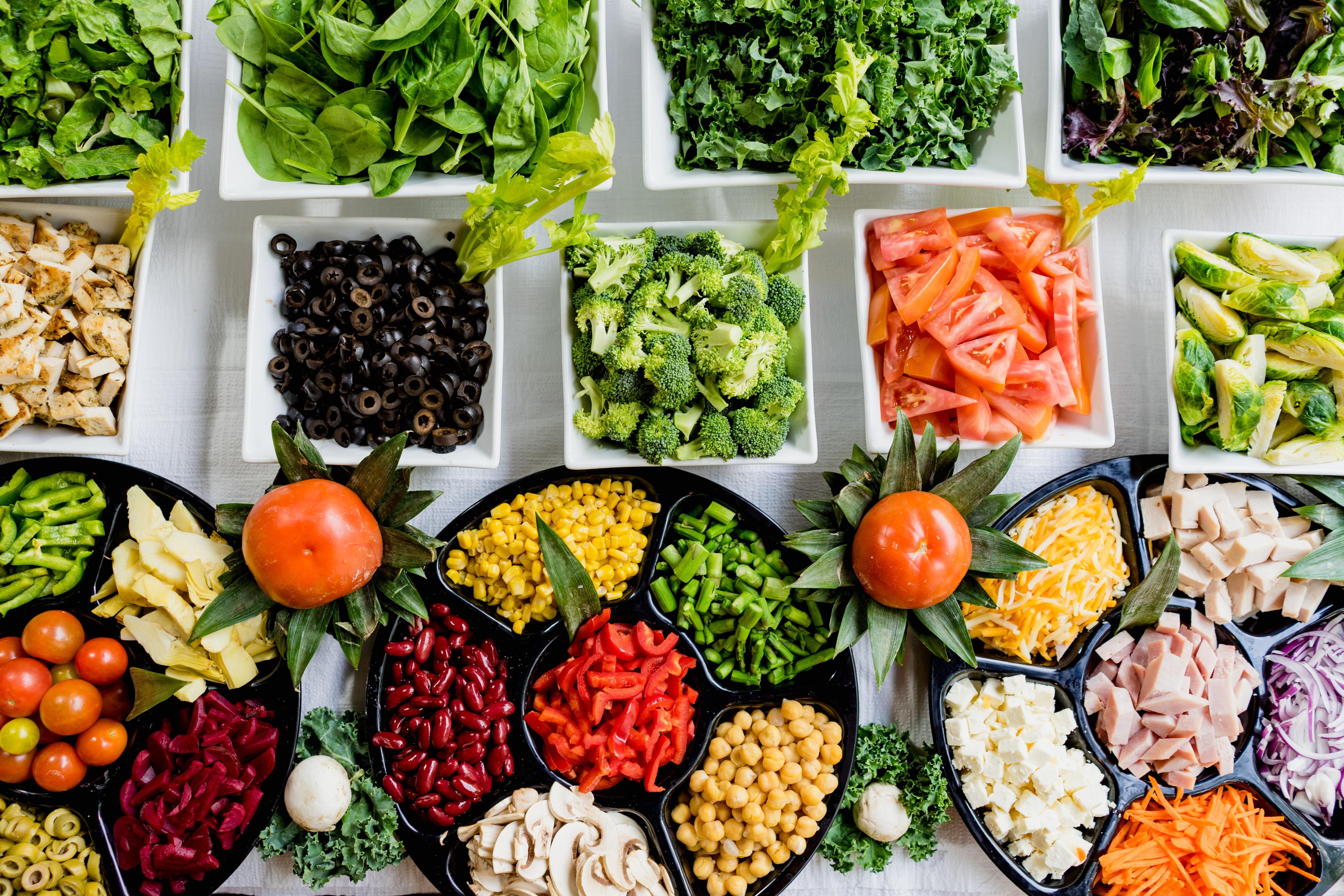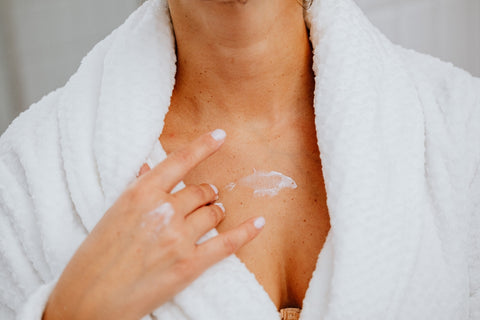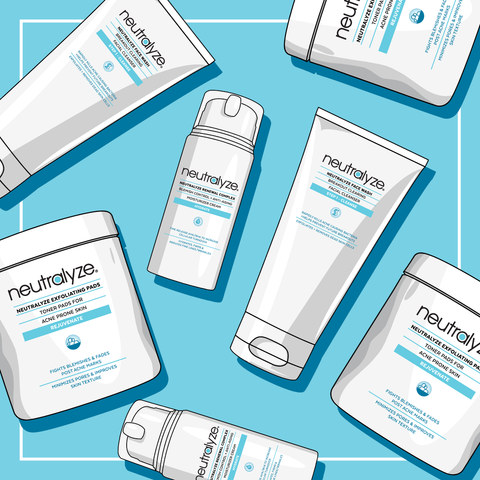How Food and Diet Can Trigger Acne Breakouts and Inflammation

Acne is a skin condition that affects around 85 percent of individuals, particularly those aged 12 to 24 years old, in the U.S. alone. It can affect up to 50 million individuals annually, making it one of the most common skin problems in the country.
Acne is usually caused by excess oil production, clogged follicles, bacteria, or inflammation. Other factors, such as stress, medication, age, and hormonal changes, may also triggering or aggravate breakouts.
Does Diet Affect Skin Condition?
What you put into your body can affect not only your health but also your skin. There are several types of food that can make your skin more acne-prone or cause acne breakouts.
For example, diets that are high in saturated fat or in trans fat, which is usually found in processed food, can trigger hormones in the body and stimulating them to produce excess oil, which may lead to acne.
There has been significant evidence over the years that reinforce the role of diets in the prevention or in the exacerbation of acne breakouts. A study published in 2016 highlighted food with a high glycemic index, like sugar, soda, white pasta, and other refined carbohydrates, can be linked to acne-prone skin.
High amounts of refined carbohydrates can trigger inflammation throughout the body, leading to pimples or acne breakouts.
While more research is needed on the connection between food and acne breakouts, the American Academy of Dermatology suggests that you should monitor your breakouts and assess if there are certain types of food that trigger your acne. You can also observe what happens to your skin when you don’t eat these types of food.
What Types of Food Are Believed to Trigger Acne Breakouts?
There are many types of food associated with acne breakouts:
Refined grains and sugars
Refined carbohydrates come in different forms, including:
- Bread, desserts, cereals ,or pasta made using white flour
- White rice
- Beverages sweetened using sugar, like soda or juice
- Sweeteners
- Processed food
These foods are considered as high glycemic index (GI) foods or foods that can quickly increase blood sugar levels. When your blood sugar rises quickly, your body responds by producing insulin, an insulin-like growth factor (IGF-1), and androgens.
Higher insulin levels in the blood can stimulate the oil glands to produce more sebum, thus increasing the risk of acne. Higher blood sugar levels can lead to inflammation, which can adversely affect both your health and skin.
Dairy products
Consumption of dairy products is also linked to an increased risk for acne.
Dairy signals the body to release insulin and growth factors, both of which can make you more acne-prone. Other factors are also being studied for links between acne and dairy, particularly milk proteins (casein and whey) and the hormones in milk that can influence the body’s hormones.
While dairy may be one of the most common acne triggers, keep in mind that each person’s reaction to it varies.
Fried foods
Fried food is commonly thought to cause acne. However, there is no evidence that links their fat and oil content to oily skin.
It’s worth noting that while eating fried foods won’t necessarily trigger your skin’s oil glands, these are high in unhealthy saturated and trans fats. It is these unhealthy fats that can possibly cause inflammation, which lead to acne breakouts.
Chocolate
There are some studies that show a link between chocolate consumption and acne development, but it’s still unclear whether or not chocolate itself actually causes acne.
In milk chocolate, for example, acne is attributed to the presence of acne and sugar. In one study, dark chocolate, which is touted as a healthier alternative, has caused an increase in both inflammatory and non-inflammatory lesions on young men with a history of acne.
Additionally, dark chocolate also contains cocoa butter, which has oleic acid and stearic acid, with the former influencing pore clogging in animals.
While researchers are still on the fence about chocolate and whether or not it affects the skin, dermatologists recommend that you observe how your skin reacts when you consume chocolate.
If you start to breakout or if your acne worsens, it’s best to limit or avoid eating chocolate.
Alcohol
Drinking alcohol doesn’t directly cause acne, but it may still be considered as a potential trigger. Excessive alcohol consumption may cause steroid hormones to be released, stimulating the oil glands to produce sebum, an excess of which can cause acne.
Alcohol can also cause other effects that can indirectly trigger or worsen acne.
It can also cause dehydration, signaling the sebaceous glands to produce excess sebum, increasing the risk of acne breakouts. Alcohol, when mixed with sweeteners, can exacerbate or contribute to inflammation, making you more acne-prone.
Furthermore, alcohol can add to the buildup of toxins which, when not addressed, may have serious consequences on your body, affecting not only the condition of your skin but also your health.
Other food you may be sensitive to
Each person’s body reacts differently to different types of food.
With acne being viewed as primarily an inflammatory disease, consuming food that you’re sensitive to can contribute to inflammation and make you more acne-prone.
What Types of Food Help Prevent Acne?
There are several types of food that are good for the skin and can help prevent or minimize acne. For instance, eating foods rich in zinc, vitamins A and E, and antioxidants can aid in reducing inflammation. Aside from being anti-inflammatory, zinc also reduces acne-causing bacteria and may help in reducing oil production.
Here are some types of food that can help give you healthier skin:
Food with healthy fats
Eating food rich in omega-3 fatty acids may help calm acne-prone skin. These healthy fats may aid in reducing inflammation and in preventing the occurrence of sagging or rough skin, which are also symptoms of chronic inflammation.
Foods rich in omega-3 include:
- Fatty fish like salmon, sardines, and mackerel
- Spinach
- Kale
- Walnuts
- Flaxseed
- Chia seeds
Fruits and vegetables
Antioxidant-rich food helps counter the effect of toxins in the body by fighting free radicals and oxidative stress. It can also have anti-inflammatory properties.
Food packed with vitamins, minerals, and antioxidants include:
- Berries
- Carrots
- Squash
- Broccoli
- Brown rice
Probiotic-rich food
Probiotics are known to promote balance in your gut’s microflora. Microflora imbalance can lead to a host of issues, including digestive problems and allergies. Probiotics may reduce inflammatory responses, particularly in individuals with dairy allergies. This, in turn, helps lower the risk of acne.
One of the most popular sources of probiotics is yogurt, but, if you’re trying to go dairy-free, there are plenty of other options, such as kefir, kimchi, tempeh, and pickled vegetables. Moreover, supplements for probiotics in capsule or powder form are now available.
Low GI foods
Unlike high GI foods, which can affect blood sugar levels, low GI foods can prevent and reduce acne breakouts. They’re less processed and often have higher fiber content. These types of food take longer to break down, thus, stabilizing your blood sugar levels.
Aside from being potentially beneficial for acne-prone skin, a low GI diet may also help lower the risk of type 2 diabetes and cardiovascular disease. It may also aid in weight loss and having improved cholesterol levels.
Examples of low GI foods include:
- Whole grain or multigrain bread
- Steel cut oats
- Starchy vegetables
- Tomatoes
- Grains like quinoa, barley, and semolina
Certain diets may also contribute to preventing or reducing acne.
Diets like the Whole30 and keto work by eliminating certain food groups that may trigger or worsen acne. For example, the Whole30 diet eliminates processed food, refined sugar, dairy, and alcohol, all of which affect the body’s hormones, promoting inflammation or an excess production of sebum.
It’s best to consult with your doctor or dietitian before practicing a special diet.
Aside from making dietary adjustments, there are other ways to prevent acne breakouts and care for acne-prone skin.
To prevent acne:
Keep your face clean
Wash your face daily to remove dirt, excess oil, and other impurities. Gentle exfoliation removes dead skin cells, preventing them from building up and clogging your pores. Excess exfoliation, meanwhile, can worsen acne, as it can end up removing too much oil, prompting the skin to produce more oil in order to compensate.
Avoid touching your face
While it may be tempting to pop a zit, touching your face can spread bacteria. It can also aggravate the already-inflamed skin, which may lead to infection or scarring.
Check the label
When choosing skincare products, always check the label. Go for products that are non-comedogenic and those that are specially formulated for your skin type.
Avoid products that contain harsh ingredients that may dry your skin.
Avoid too much stress
While stress does not directly cause acne, it can trigger inflammation and worsen acne breakouts. When you find yourself stressed, try to engage in stress-reducing activities like meditation, yoga, or exercise.
Caring for acne-prone skin doesn’t just entail avoiding food that can trigger breakouts. To optimally care for your skin, you need to determine your skin type and the kind of acne you have.
Try over-the-counter acne medicine and implement measures for further preventing acne, like not leaving makeup on overnight or changing your hair care routine. Most importantly, you need to consult with your doctor or dermatologist to find the right treatment that works best for you.
If you notice that your acne is getting worse, or if it’s causing you emotional stress, immediately seek help from your trusted medical provider.
Making the switch healthier food choices can be difficult at first.
But, this doesn’t mean that you should be depriving yourself of sweets and other favorite foods. You can always treat yourself once in a while. Moderation is the key, along with observing healthier practices, such as swapping your usual pantry items to healthier alternatives. Your skin—and health—will thank you.


